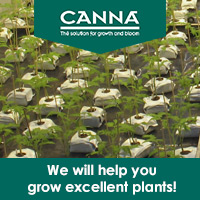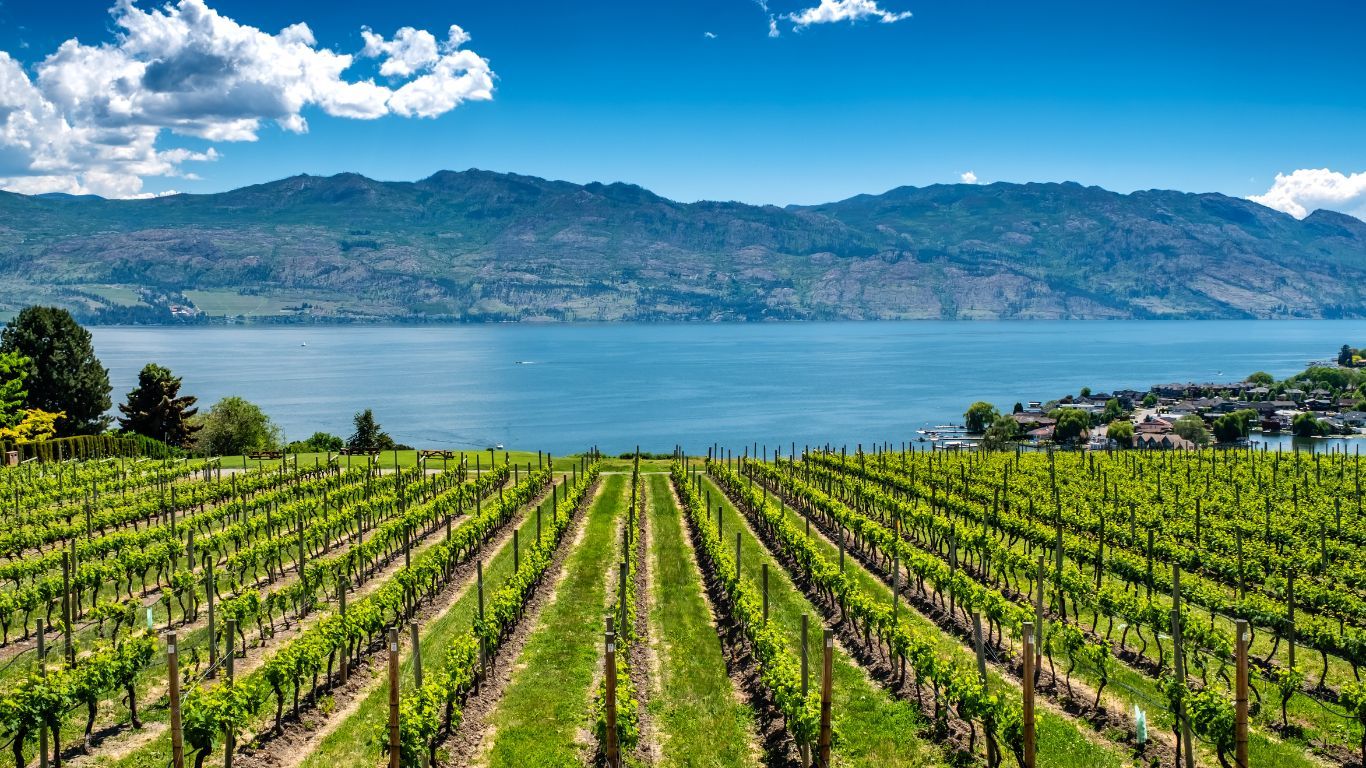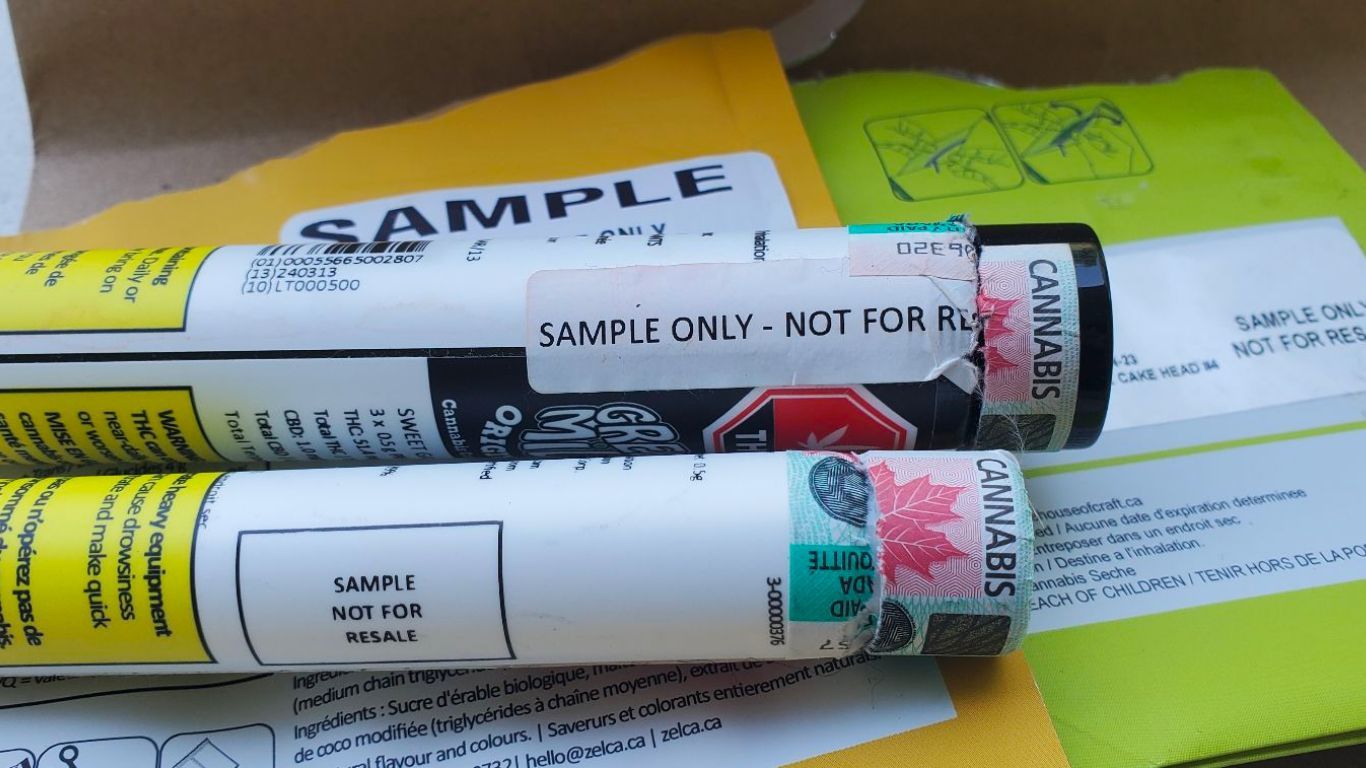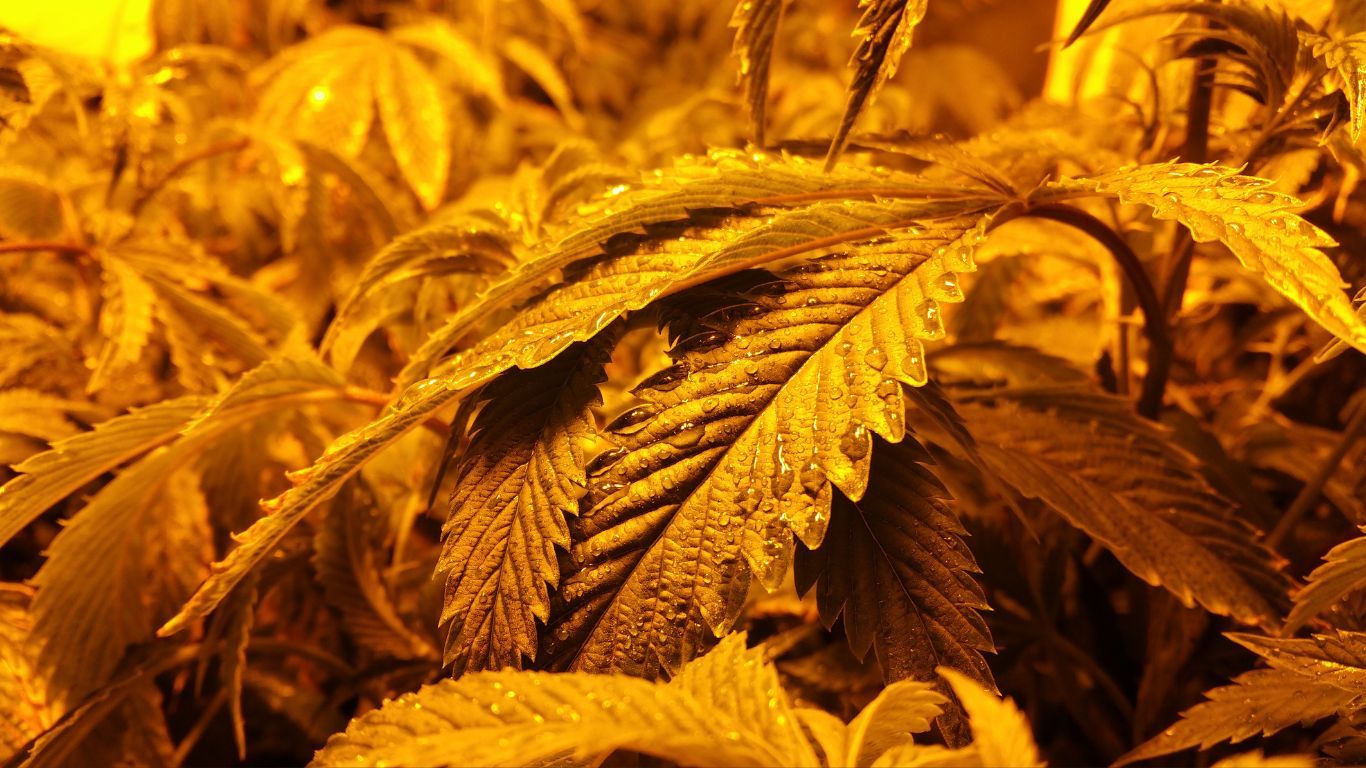
A collection of outdoor cannabis growers in BC’s Kootenay region are pooling resources to get their crop to market this fall.
The program, dubbed the Rose Buddies, involves seven licensed outdoor micro cultivators all growing the same cultivar to be purchased by and sold through another outdoor BC grower, Rosebud Cannabis Farms.
The goal, they say, is to address a common problem plaguing small-batch growers in BC and all across Canada, where smaller batch products, especially outdoor, are more difficult to sell into provincial markets.
Che Leblanc, the owner of Rosebuds, says that the intention behind all of these different farms growing the same variety of cannabis is to maintain small-batch, craft integrity, while still benefiting from a larger, combined harvest to contribute to Rosebuds product lines that will be sold into the provincial retail systems.
Micros are limited to 200m2 of production space. Although Leblanc’s Rosebud Cannabis Farms is a standard cultivator with no size limit on their potential production space, Leblanc says they have stayed relatively small themselves to ensure they can maintain quality.
We’ve decided to cap our site at a certain size because beyond that we would start to lose quality and the craft aspects of it. So rather than growing larger on our farm, we want to work with other small farms in the Kootenays to expand our harvest.”
Che Leblanc, Rosebud Cannabis
Rosebud provides the genetics and asks the growers to all utilize similar “regenerative” growing techniques, focusing away from synthetic inputs from off-site, and then buys their harvest from them at the end of the season.
“What we’re doing with this community of micro growers is giving them our genetics and supporting them with production methods,” explains Leblanc. “Then, at the end of the year, we buy the biomass back off of them at a fair price and put them into our product line.
“There are two opportunities that come out of this: one is to support our community—to give them a fair price and help our region—and the second is to add more biomass to our product line. We’ve decided to cap our site at a certain size because beyond that we would start to lose quality and the craft aspects of it. So rather than growing larger on our farm, we want to work with other small farms in the Kootenays to expand our harvest.”
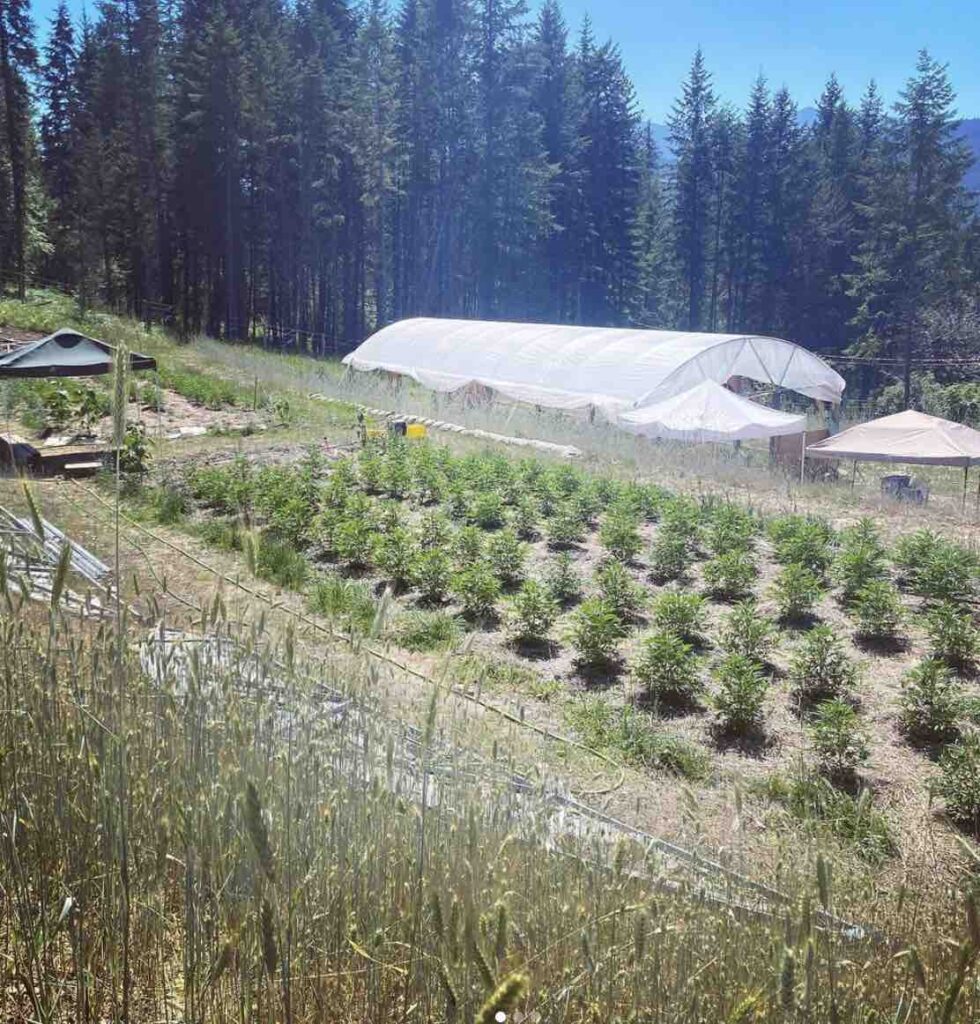
Leblanc says the group takes part in weekly phone calls to check-in, and some members also take the time to visit his farm to better learn about his preferred growing techniques, then taking those practices back to their own farm.
The connections that create the collaborative platform for Rosebuds came from mutual connections with the local Community Futures cannabis program in the Kootenays that has helped many of the members, including Leblanc, to get licensed.
Jimi Holland, owner of Wholeland Enterprises in Kaslo BC, says he started looking at the micro licensing project in 2020, but it wasn’t until he worked with the local Community Futures chapter that he found a relatively even path into the licensing process.
“I discovered that Community Futures had a program to assist people to transition,” he explains. “Once I got hooked up with the Community Futures team, things started rolling really well. It was excellent.”
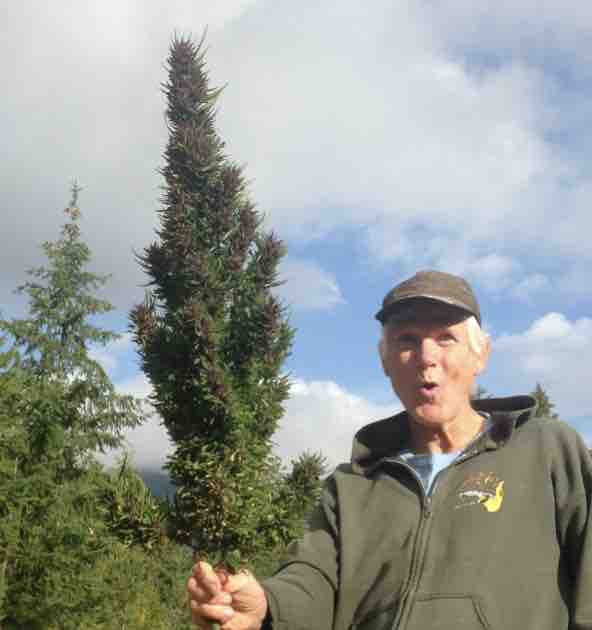
But once licensed, Holland says one of his major concerns was figuring out how he would sell his product after hearing this was a challenge for other outdoor growers, especially micros.
“The real weak link for me was finding a market. But through Community Futures I found out that Che was starting a bit of an informal working group, so I started talking with them, and Che was able to get me genetics and said he could find buyers. So far it’s going pretty good.”
The expectation is for crops to come down in September and October, and then be processed for extraction for use in topicals and eventually vape carts. The strain they’re all growing is Sarah’s Secret, a creation of Leblanc’s, and one he says grows well in the Kootenay region checking all the boxes.
“Getting an outdoor licence isn’t as difficult as some people think it is,” says Ross. “The difficult part is how you sell it and where it goes and what it goes into. So this is a regional strategy of how we can create a retail pathway for farmers, whether they’re indoor or outdoor.”
Shannon Ross, Kootneay Futures
Although the plan for this year is to work with another processor to get to market, long-term they plan to be processing in a facility just outside Nelson that is being developed by some of those who had been involved in the Kootenay Community Futures program.
Shannon Ross, who played a key role in helping many of the Rose Buddies members, and others, get their micro cultivation licences, is also one of the people behind this processing facility, Antidote, which they hope to have licensed in 2022—in time to process for local growers like Rose Buddies. LeBlanc and Rosebud Cannabis Farms is also a 25% owner of Antidote.
“Getting an outdoor licence isn’t as difficult as some people think it is,” says Ross. “The difficult part is how you sell it and where it goes and what it goes into. So this is a regional strategy of how we can create a retail pathway for farmers, whether they’re indoor or outdoor.”
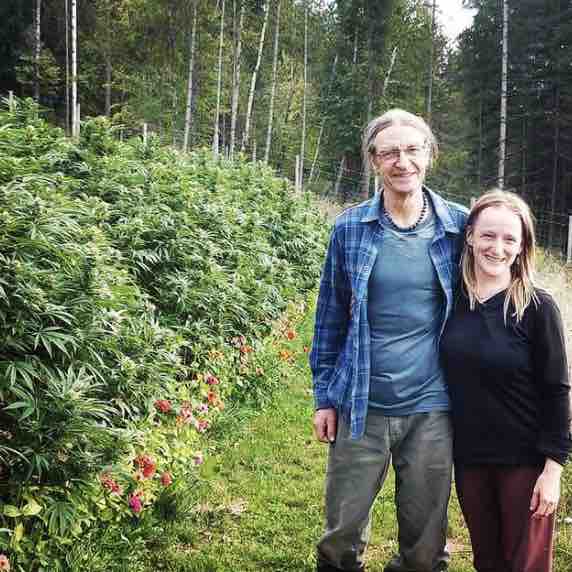
“So part of the challenge that people have been facing is not having huge volumes of cannabis to go into one particular product. So what we have found is if we have several outdoor micro cultivators, if they’re all growing different types and batches and there’s no consistency, those are some challenges that a lot of the outdoor growers have had.”
The intense local focus of the Community Futures Program helped birth the Rose Buddies program, she says.
“There’s a lot of collaboration that just started to happen naturally, and Rose Buddies kind of naturally grew out of that,” she says. “Having a community of people to ask questions and help each other out and recognizing the challenges that a lot of the outdoor growers have in getting to market. Because it’s one thing to grow cannabis, it’s another to get it to market.”
“Somehow we all just started meeting every week and it just made sense to all learn from each other and support each other, and also find a way into the market. It’s pretty tough for an outdoor micro to enter the market.”
Kalibri Wetsch, Green Wynds
Kalibri Wetsch at Green Wynds in Crawford Bay, another outdoor micro taking part in the Rose Buddies program, echoes that feeling of community collaboration. She and her partner James Wood have been gardening on their plot of land for over a decade and met Leblanc last year through mutual friends and the Community Futures program.
“I had been to Che’s farm to help with harvest last year and then I learned about Rose Buddies through the Community Futures program and it all came together,” she says. “Somehow we all just started meeting every week and it just made sense to all learn from each other and support each other, and also find a way into the market. It’s pretty tough for an outdoor micro to enter the market.”


